US teens are conflicted about their smartphonesUS teens are conflicted about their smartphones
A new survey reveals that, while US children aged 13-17 value their smartphones, they’re also acutely aware of the downsides.
March 12, 2024

Pew Research Center, one of America’s most respected demographic research organisations, has published the results of an online survey conducted for it by Ipsos, which polled 1,453 U.S. teens and parents of teens in October last year on their attitudes to smartphone use. From the kids’ point of view, it paints a picture of a generation all too aware of the downsides of their smartphone addiction.
While 70% of the teens said they think the benefits of owning and using a smartphone outweigh the harms, almost three quarters of them indicate some kind of relief when being apart from their devices. A likely major reason for this apparent contradiction lies in teen perceptions of the relationship between smartphones and their social lives.
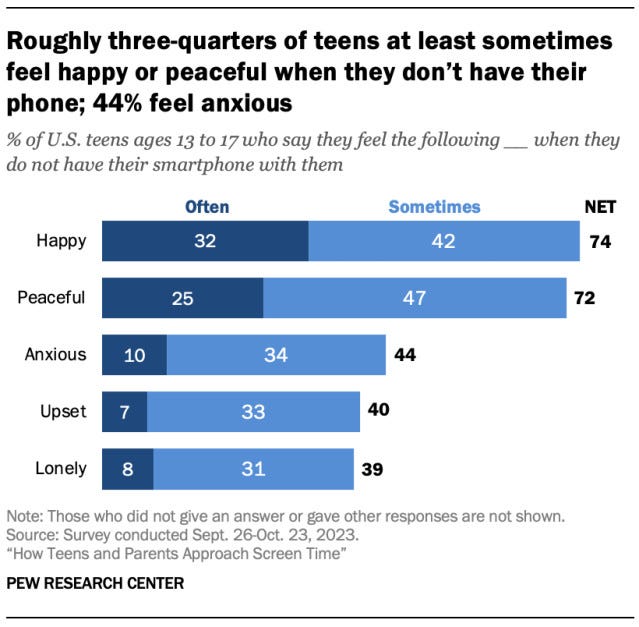
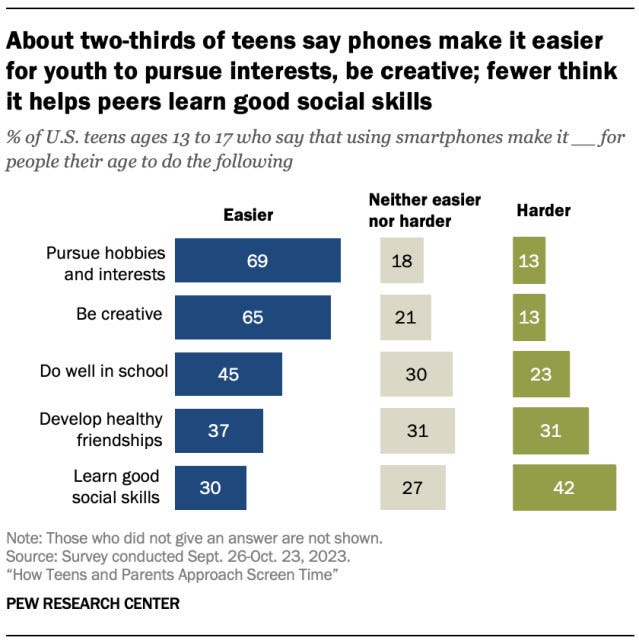
Among those teens, girls are more acutely aware of the downsides of smartphones and social media than boys. Presumably as a consequence of this, girls are also more likely to reduce their use of both their phones and social media, the latter likely consumed via the former. This is consistent with the findings of US social psychologist Jon Haidt, who places much of the blame for a massive increase in mental illness in teen girls at the feet of social media. The good news is that these findings indicate many girls are self-diagnosing and taking remedial action.
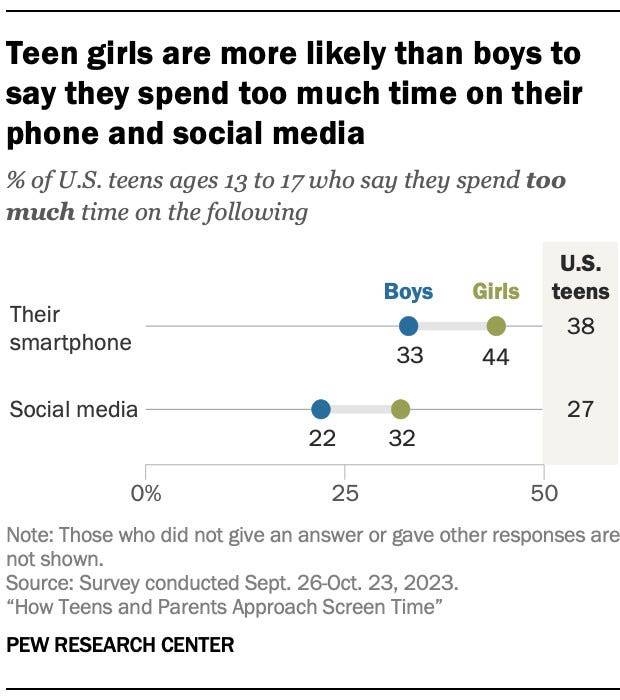
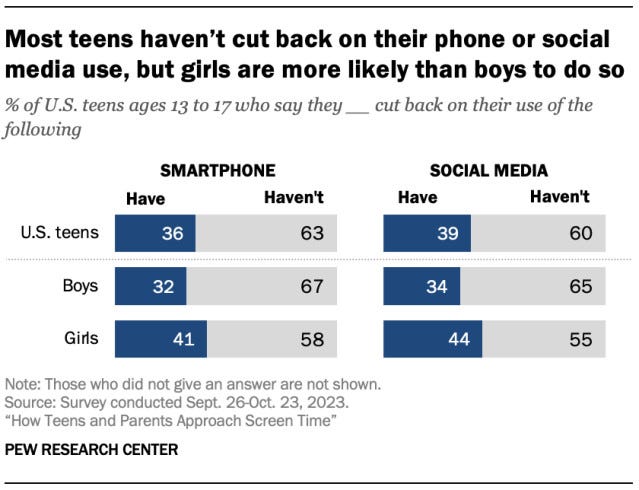
It's a bit surprising to see that a minority of both teens and their parents say they argue about how much time the former spend on their smartphones. Since it seems safe to assume teens will spend the majority of their time on phones if unconstrained, a possible explanation for this apparent parental indifference could be that those parents are no less addicted than their children.
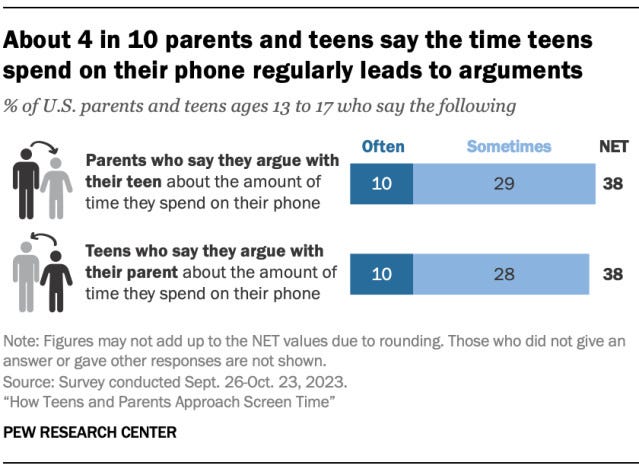
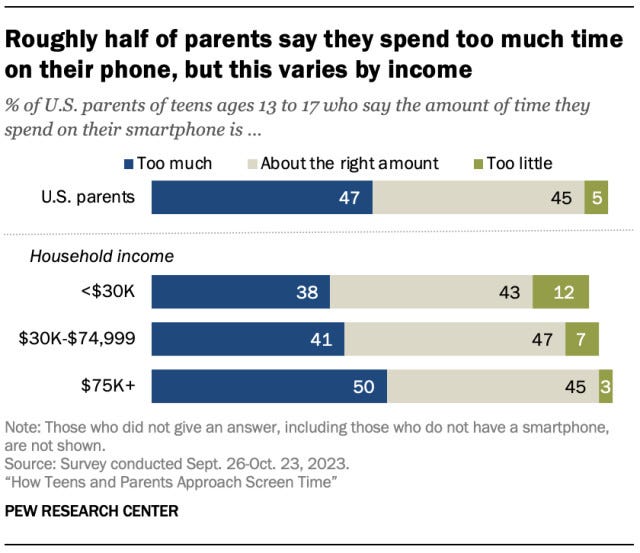
Smartphones have been a must-have accessory for over a decade and, in that time, parents have had to wrestle with the matter of when to first allow their kids to have one and then how to moderate their use. The results of this survey indicate that, in the US, the kids themselves are developing a sense of what constitutes a healthy relationship with their phones and the content they offer. As the pandemic made clear, digital interactions are no substitute for real-life ones and it’s great to see many kids are getting that memo.
About the Author
You May Also Like










.png?width=300&auto=webp&quality=80&disable=upscale)


_1.jpg?width=300&auto=webp&quality=80&disable=upscale)